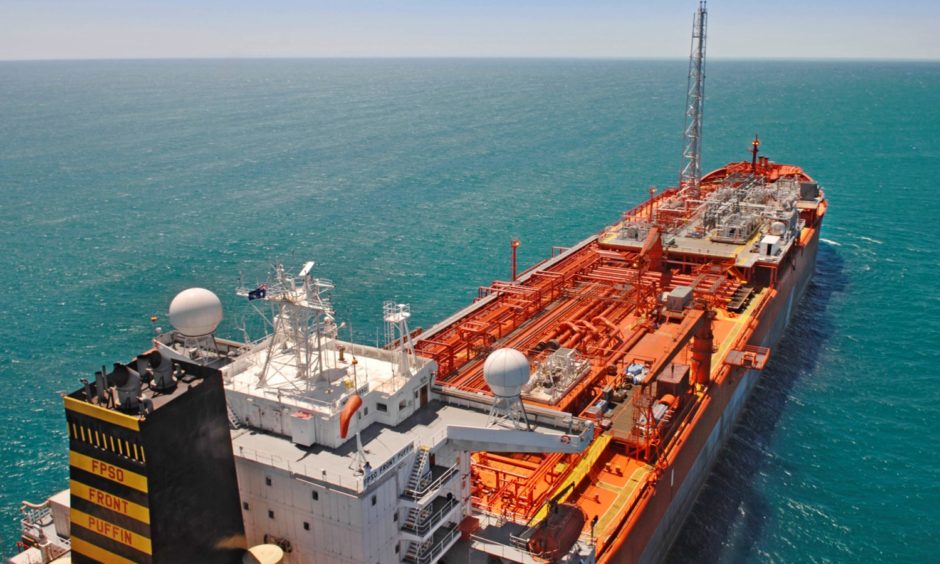
Panoro Energy has struck a deal to sell its stake in Nigeria’s OML 113 to PetroNor E&P.
Both companies are listed in Oslo. PetroNor has agreed to pay $10 million for the 6.502% stake in the Nigerian block, which will be paid in shares. There is also a contingent future payment of up to $25mn, based on future gas sales.
The deal will give PetroNor net production of 350-400 barrels of oil equivalent per day, with 20 million barrels of 2C reserves. Further development of the Aje field on OML 113 could see PetroNor’s share rise to 2,500-3,000 boepd, with gross output of 20,000 boepd. Of this, 5,000-7,000 boepd would be oil and condensate.
In the first half of 2019, revenue reached $6.3mn from the Aje field, with operating costs of $4.19mn. Once further costs and depreciation have been stripped out, it reported a loss of $82,000 for the period. The loss has narrowed over the years.
PetroNor will buy two Panoro subsidiaries, Pan-Petroleum Services Holding and Pan-Petroleum Nigeria Holding, which own 100% in Pan-Petroleum Aje. The latter holds the stake in the block, in addition to a 16.255% cost-bearing stake, giving an economic interest of 12.19% in OML 113.
Once completed, PetroNor is expected to create a new company, following talks with OML 113’s operator, Yinka Folawiyo Petroleum (YFP). This would involve PetroNor taking a lead role in the project’s next phase, which would involve development of both gas and liquids on the block.
PetroNor will have a 45% stake in the special purpose vehicle (SPV), while YFP will have 55%. This new unit will have a participating interest in the block of 75.5%, with a 29% economic interest in the initial period, which will rise to 38.7%.
The purchase and creation of the SPV “will result in a dynamic and effective operating JV capable of realising the full value of the field, both in terms of near-term oil production growth and more importantly with regards to the development of the substantial gas resources associated with the field”, PetroNor’s CEO Jens Pace said.
Assuming completion of the deal, Panoro will no longer hold Nigerian assets. It plans to distribute the shares in PetroNor among its shareholders via a special dividend.
The company’s CEO John Hamilton described the sale as a “win-win” for the two companies. “Aje was a non-core asset for Panoro and allows us to further focus on expanding our organic operations in Tunisia and Gabon while retaining exposure to the considerable upside at OML 113 through the deferred consideration.”
Hamilton went on to say that PetroNor had the “technical and financial capabilities along with the depth of expertise and vision to advance further the next ambitious development phases of Aje in a smooth and efficient aligned partnership with the operator, YFP”.
While PetroNor expects to acquire the two Panoro subsidiaries for shares, there is an option to pay cash should its share price fall below $0.13 per share.
The deal will have an effective date of June 30, 2019, with a long-stop date of December 31, 2020. The sale requires approval from the Department of Petroleum Resources (DPR) and the Nigerian Minister of Petroleum Resources. Other companies have struggled to make timely progress on asset sales in Nigeria, with the approval process being dragged out. Should it take more time, both companies have the option to end the process.
The contingent payment is triggered once the Pan-Aje subsidiary has covered all costs spend to the date of completion. Following this, PetroNor would pay Panoro $0.15 per 1,000 cubic feet of gas produced for sale from the Aje field, up to $25mn. Gas from the field will be exported to Lagos. The first phase of production from Aje began in May 2016 and is currently producing around 3,000 bpd of oil and condensate.
PetroNor completed its combination with African Petroleum, a West Africa-focused explorer in August.
